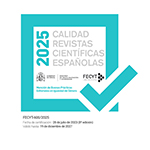Translating genres, creating transgenres: Textual 'betweens' as situation-based systemic innovations
Resumo
This paper works on the notion of transgenre (Monzó-Nebot 2001a, 2002a, b), its uses and possibilities in the study of translation as mediating intercultural cooperation. Transgenres are discursive patterns that develop in recurring intercultural situations and are recognized and used by a community. Based on the reiteration of communicative purposes and individuals’ roles in translated situations, interactions are conventionalized to streamline cooperation between cultural and social groups, thereby engendering a distinctive set of taken-for-granted assumptions and meaning-making mechanisms and signs which are particular to a translated event. The paper will first argue how this concept takes a step beyond the existing proposals from cultural, social, and linguistic approaches, especially the third space, the models of norms and laws of translation, and universals and the language of translation (translationese), by focusing on the situatedness of textual, interactional, and cultural patterns and providing a means to model and measure the development of translation as a discursive practice, as such influenced by historical, cultural, social, cognitive, ideologic, and linguistic issues. Then existing applications of the concept and new possibilities will be identified and discussed. The results of existing studies show translations build a third space of intercultural discursive practices showing tensions with both source and target systems. The legal translator is at home in this third space, resulting from their own cultural practices, which are linked to translators’ specific function in a broader multicultural system.
Downloads
##submission.format##
Licença
La revista Estudios de Traducción, para fomentar el intercambio global del conocimiento, facilita el acceso sin restricciones a sus contenidos desde el momento de su publicación en la presente edición electrónica, y por eso es una revista de acceso abierto. Los originales publicados en esta revista son propiedad de la Universidad Complutense de Madrid y es obligatorio citar su procedencia en cualquier reproducción total o parcial. Todos los contenidos se distribuyen bajo una licencia de uso y distribución Creative Commons Reconocimiento 4.0 (CC BY 4.0). Esta circunstancia ha de hacerse constar expresamente de esta forma cuando sea necesario. Puede consultar la versión informativa y el texto legal de la licencia.









